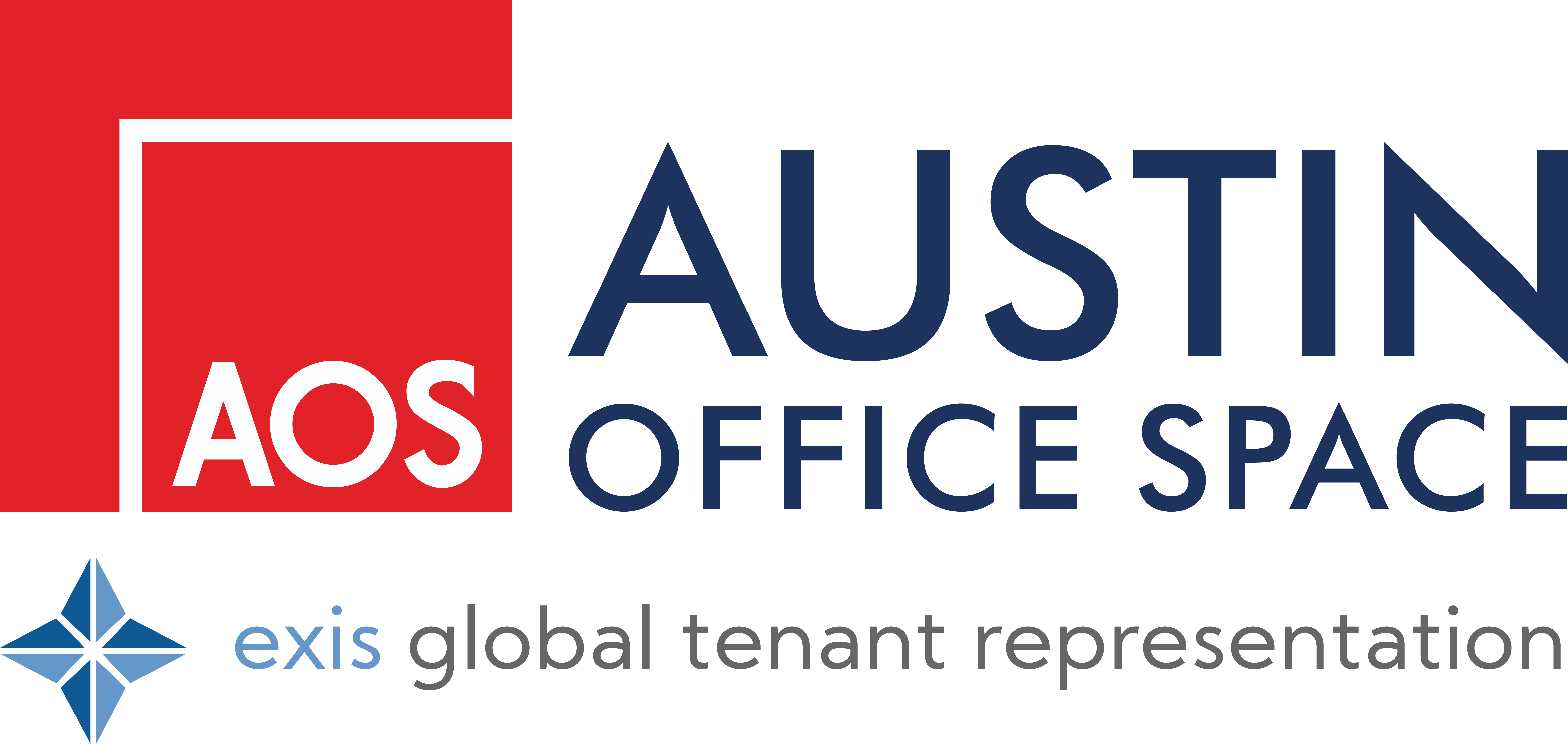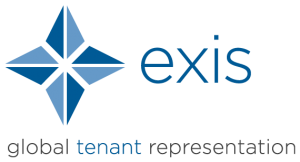A Guide to Finding Office Space to Rent for a Growing Business
Are you looking for office space but unsure where to start? Are you tired of googling the words “office space to rent near me” and finding yourself no closer to securing the space you need?
For many businesses, finding suitable office space isn’t just another nice-to-have — it’s mission-critical. But between employee commutes, commercial real estate availability, and simple aesthetics, the “find office space to rent” part of Business Planning 101 is often way easier said than done.
As a business owner, you don’t want to settle for just any office space. You need a space that’s capable of growing with your company. Read on to see how you can finally put those endless “office space for rent near me” searches to rest.
It Starts With Your Company’s Needs
Let’s say you’re in the “We need a new office space.” phase, but you’re not really sure what type of new office you’re looking for. There’s a quick fix for that — do an internal assessment before the search begins in earnest. On that note, here are some of our top tips:
1. Consider Your Current and Future Plans
At the start of the COVID-19 pandemic, many people were predicting that remote work was going to fundamentally change the way companies did business. But in 2022, Business Insider reported what many Americans had already started to suspect — just 5.5. percent of companies chose to downsize their office spaces after utilizing remote work.
If you’re making plans to rent office space, chances are that you’re not a company that’s aiming to be fully remote. However, if you have hybrid teams or long-term plans to offer flexible hours, you’ll want to think very seriously about whether the office spaces you’re looking at can accommodate your needs.
Are you planning to give people a telecommuting option? Do you need an office space that has virtual and in-person meeting capacity? With PwC’s 2021 survey reporting that 72 percent of remote-capable people want a reasonable mix of remote work and in-person work, you might have to consider these issues sooner rather than later.
And what you don’t want is to find yourself turning away top-tier candidates while saying things like, “We just don’t have the office space for that.”
2. Client Expectations
What do corporate law firms, banks, and high-end clothing stores have in common? Their clients all expect a certain aesthetic when they come to the physical building to do business.
And on a human level, this makes sense. A presentable space gives a sense of trust to the business that you will be working with. It shows good character and a sense of accomplishment.
As much as we’ve all learned that it’s the inside that counts, image matters when you’re choosing an office space.
For this reason, you’ll also want to audit your brand and the image that you want to put forward with people. Is your company a hip and youthful service provider? Do your customers tend to be older people with more conservative business sensibilities?
Landing clients is hard enough in the best of times. Don’t sign a multi-year commercial lease on an office space that leaves your current and future customers feeling uncertain about your capabilities.
3. Your Company Culture
As a manager who has made hiring decisions in the past, you’ve more than likely passed on candidates who had all the skills you needed on paper. Not because you thought their talents weren’t up to par, but because you knew that they weren’t a good personality fit.
When you’re evaluating office space, you’ll need to do a similar fit assessment for your company.
Consider the story you are telling your employees. Are you a collaborative fun place to work or more oriented to corporate formalities? There’s no right way or wrong way to do business. But you do want to avoid picking an office that doesn’t fully fit with your company culture.
Picture a traditional corporate firm full of staff members who frown upon Casual Fridays. Sure, the pool table and the spray-painted walls might look awesome, but these employees may look at the same setup and feel uncomfortable at the thought of working there.
In the same way that you wouldn’t want to purchase an office space that will make your customers reconsider doing business with you, it’s also important to make sure that you’re renting a place that your employees are comfortable with.
4. Your Budget
Most businesses deal with unexpected costs on a regular basis. Maybe that new product line was so popular that you needed to double your next run. Or maybe supply chain issues and skyrocketing material costs are wreaking havoc on your margins.
Although technically your lease is supposed to be a fixed expense, the dollar amount that you pay each month is rarely ever going to tell the whole story.
Even after you’ve covered the upfront cost of relocating and purchasing equipment, you may still find yourself paying for upkeep, insurance, and property taxes. And while a few hundred dollars here and there might not seem like a big deal at the moment, these costs can add up over the course of several years.
As such, you don’t want to be in the business of spending so much on rent that you’re not able to weather the unexpected. To that end, if your company is just starting out or your revenue sources are still getting established, that downtown property may need to wait.
What to Look For in an Office Space
When you get right down to it, selecting the best office space available is like finding a good business partner. This office is the place where you’ll woo clients, hire your next superstar employee, and spend over 40 hours a week for the next 12 months or longer.
As you search for the perfect office space, here are some factors that you’ll want to consider:
1. Location, Location, Location!
In residential real estate, your surrounding neighborhood can have a direct effect on your property value. And while property value might not be that important to an office lease, location is still an issue worth considering when it comes to your office space.
Here’s why:
An office space might be perfect for your needs on paper. It might have more room for your tech hardware than you expected, multiple meeting rooms, and a large parking lot for employees and clients, but if the new commute is too lengthy, the space is not manageable or welcoming, employees and clients may go elsewhere. Your company might not be able to function to its fullest capacity.
In addition, an inadequate office space location can come with its own financial downsides. If the office space is situated in an area that makes people feel unsafe, for instance, you could be forced to spend more on commercial insurance and security features.
2. Look for a Space That’s Future Proof
Techopedia defines future-proofed goods and services as things that are set up so well the first time that you don’t have to make changes to the system as time goes on. While nobody can predict the future, business owners can make educated guesses about where they see their companies in the next 5, 10, or 20 years. And this information is extremely important to your office search.
If you’re in the middle of a massive expansion phase, you’ll want to ensure that your office space will be able to grow with you throughout the term of your lease.
For most businesses, moving from office space to office space is extremely disruptive on a personal and a productivity level.
Any new office space should meet the short-term and medium-term needs of your business.
3. The Building Condition and Infrastructure
Similar to the location of your business, the condition of your building can also have consequences for your finances. Lack of amenities and the state of repair of the building can affect your bottom line.
If the space needs to be refitted so that it has a particular internet capability, is unsafe, or if your insurance company is concerned about the state of the infrastructure, you could be saddled with expenses that go well beyond the lease.
While this is an area where businesses may have to compromise, it’s important to know what you’re signing up for.
Are the necessary changes going to be expensive? Does the appearance of this office building negatively affect the company’s image? These are questions that are worth pondering as you assess the different office spaces you visit.
4. The Little Comforts
Little quirks in your new space that may seem like a nonissue at signing can augment over time, and leaving a multi-year lease often requires subleasing the space.
To that end, you have to make sure that the flaws in your proposed office space are ones that you’re prepared to live with for the foreseeable future.
If the color of the wall isn’t quite to your liking, you can probably fix that with a new coat or some strategically placed art. But if you’re a retailer who sees a lot of foot traffic, a quirky front door or a slightly unintuitive entrance could put a damper on your ability to do business.
And when these little issues and minor inconveniences add up, they have a way of really blowing up. As such, you’ll want to get the nitpicking out of your system before you sign the lease.
What Types of Office Spaces Are Generally Available?
Office spaces are generally broken down into three general classes (see The Balance):
- Class A
- Class B
- Class C
We’re going to discuss each of these categories one by one.
1. Class A Office Spaces
Class A space is premium space.
These buildings are known for having high ceilings, updated HVAC, and world-class property management teams. Chances are that the building itself will be fairly new and characterized by excellent architecture, engineering, and amenities.
However, Class A rental rates are often high. Due to the required financials for leasing this type of space, many businesses will not be able to rentClass A office spaces.
2. Class B Properties
Class B, while not as prominent as a high-rise, still delivers a workable and nice option. You might not have the premium service or the jaw-dropping architecture associated with Class A spaces, but you will still get some services alongside a manageable building location. The building may be fantastic but located in suburbia.
As a general rule of thumb, Class B office buildings are often older than their Class A counterparts. As such, you may find yourself dealing with the usual concerns that come from doing business in an aging building.
3. Class C Properties
Class C is often functional and often not in a fancy part of town.
Class C properties are typically the most affordable. However, the key with Class C properties is that you need to understand why the rent is more affordable. Is this an excellent building that just happens to be further away from downtown? Or is the building aging to the point of needing major repairs?
In addition to this basic property class distinction, you can break things down even further in terms of open and traditional office layouts. But with these basic categories in mind, you’ll have a much easier time finding a building that makes sense for your business and your budget.
How to Negotiate a Lease Agreement
You’ve done your research and you’ve found an office space that everyone can be happy with. You want to sign the lease but you also want to make sure that the interests of your company have been represented.
Here’s how you can negotiate your lease like a pro:
1. Get a Feel for Your Future Landlord
Most landlords won’t lead with the red flags. Often your broker will have dealt with a particular landlord on numerous occasions and will have insight into their processes. Other areas of investigation might be
- Does the common area look clean and well-maintained?
- Are the amenities in working order?
- Does this property management company have a solid reputation?
In the long run, you’ll be glad that you took the time to do this assessment.
2. Read the Fine Print
The terms and conditions that are listed in the lease will be what you are legally bound to. Your attorney can help you with the legal terms and your broker can guide you through the business terms.
Can you upgrade your office area without consulting the landlord? If a window gets broken or a door needs fixing, who’s responsible for the upgrades?
These complicated clauses can have a profound impact on your day-to-day operations and your insurance needs. You can never review these materials enough.
3. Consider Your Leverage
Your bargaining position is relatively low considering the size of your lease compared to the landlord’s portfolio, but your broker knows what your landlord will typically give and what the market rate is for similar offices in the area. Generally, the longer term and larger space you commit to, the better your negotiating power.
Questions You Should Ask Before Signing a Lease Agreement
Alright. You’ve read the fine print and everything seems to be in order. Is there anything else you need to do?
If you want to dot your i’s and cross your t’s, here are a few questions worth asking:
1. What Type of Lease Am I Signing?
Many people don’t realize right away that there are multiple types of commercial lease agreements, each of which determines the rent you pay differently.. Depending on the terms of your lease, you might be paying:
- A gross rent or modified gross rent lease
- A net, double net, or triple net lease
- A percentage rent lease
Each type of lease will cover varying amounts of base rent, maintenance, insurance, and property management-related expenses.
2. Can I Make Changes to the Space?
Any changes you’d like to make to the space should be addressed upfront and baked into the letter of intent with the landlord. Some landlords will oversee construction, give a tenant improvement allowance or give their consent within the lease agreement.
If you can see yourself making any changes, you’ll want to discuss that with your landlord before you sign the lease.
“Is There Office Space to Rent Near Me?” Isn’t the Only Question You Should Be Asking
For many businesses, the search for office space is full of uncertainty.
“How much will we have to pay for this?”
“Will we ever find office space to rent?”
“Is there office space to rent near me?”
There’s always office space to rent. But finding suitable office space isn’t always so simple and in the Austin market today, you have to move quickly once you find that space. We get it.
That’s why we specialize in offering commercial tenant services that are designed to get you into your dream office in less time than you think. We can assist with landlord negotiations. And our services come at no additional cost to you.
What are you waiting for? Find the office space you’re looking for now.



